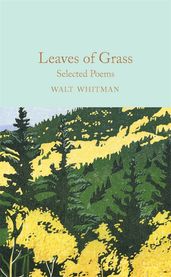'Oh Captain! My Captain!', by Walt Whitman
Author of Dear Mrs Bird, AJ Pearce, chooses Walt Whitman for this week's Friday Poem.

Author of Dear Mrs Bird, AJ Pearce, chooses Walt Whitman's classic for this week's Friday poem. Find out why in the video below.
O Captain! my Captain! our fearful trip is done,
The ship has weather’d every rack, the prize we sought is won,
The port is near, the bells I hear, the people all exulting,
While follow eyes the steady keel, the vessel grim and daring;
But O heart! heart! heart!
O the bleeding drops of red,
Where on the deck my Captain lies,
Fallen cold and dead.
O Captain! my Captain! rise up and hear the bells;
Rise up—for you the flag is flung—for you the bugle trills,
For you bouquets and ribbon’d wreaths—for you the shores a-crowding,
For you they call, the swaying mass, their eager faces turning;
Here Captain! dear father!
This arm beneath your head!
� It is some dream that on the deck,
You’ve fallen cold and dead.
My Captain does not answer, his lips are pale and still,
My father does not feel my arm, he has no pulse nor will,
The ship is anchor’d safe and sound, its voyage closed and done,
From fearful trip the victor ship comes in with object won;
Exult O shores, and ring O bells!
But I with mournful tread,
Walk the deck my Captain lies,
Fallen cold and dead.
Leaves of Grass
by Walt Whitman
Leaves of Grass is Walt Whitman’s glorious poetry collection, first published in 1855, which he revised and expanded throughout his lifetime. It was ground-breaking in its subject matter and in its direct, unembellished style. Whitman wrote about the United States and its people, its revolutionary spirit and about democracy. He wrote openly about the body and about desire in a way that completely broke with convention and which paved the way for a completely new kind of poetry. This collection is taken from the final version, the Deathbed edition, and it includes his most famous poems such as ‘Song of Myself’ and ‘I Sing the Body Electric’.
Photo by Thomas Jarrand on Unsplash



